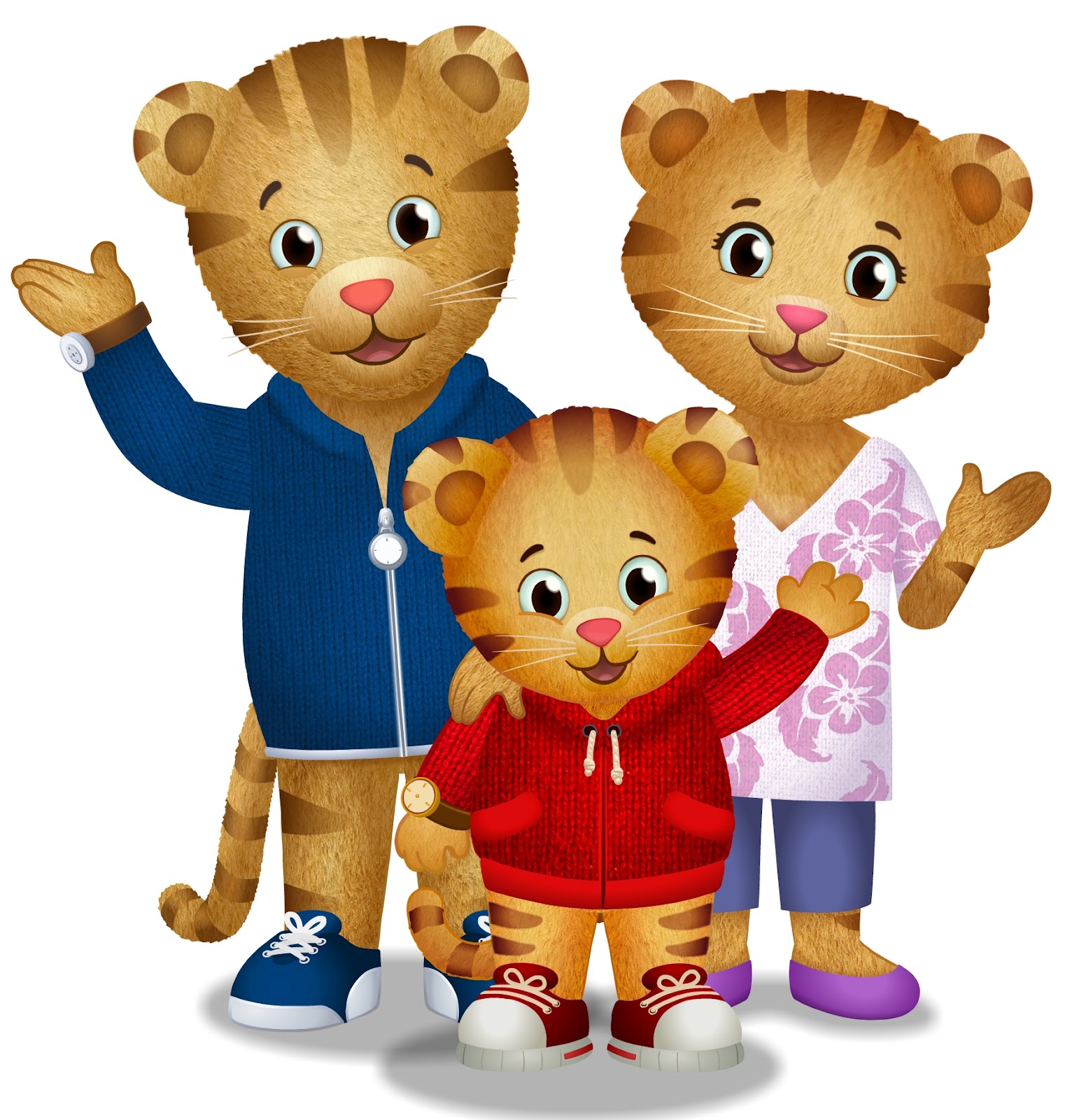Decoding Daniel Tiger's Neighborhood Visuals
The whimsical world of Daniel Tiger's Neighborhood isn't just a vibrant backdrop for preschool entertainment. It's a carefully crafted visual landscape designed to engage young viewers, reinforce educational messages, and foster emotional intelligence. From the familiar clock on the wall to Daniel's iconic red sweater, every element contributes to the show's unique charm and educational impact. But what is the secret sauce behind these seemingly simple visuals? How do they resonate so deeply with children, and what are the implications for parents and educators?
Daniel Tiger's Neighborhood visuals are more than just pretty pictures; they're a powerful communication tool. The show utilizes a distinct animation style, bright colors, and expressive character designs to capture the attention of young audiences. These visual cues are strategically employed to complement the show's curriculum, which focuses on social-emotional learning, life skills, and empathy. The consistent use of familiar settings, like Daniel's house and the Neighborhood of Make-Believe, provides a comforting sense of stability and predictability for young viewers.
Tracing back to the legacy of Mister Rogers' Neighborhood, the visual heritage of Daniel Tiger carries a rich history. The creators intentionally built upon the foundation laid by Fred Rogers, adapting the gentle aesthetic and core values for a new generation. This continuity allows parents and grandparents to share a familiar and trusted viewing experience with their children, fostering intergenerational connection and shared values. The evolution of Daniel Tiger's visual presentation, from puppets to animation, reflects advancements in media technology while preserving the essence of the original program.
The importance of Daniel Tiger’s Neighborhood illustrations extends beyond mere entertainment. The visuals play a crucial role in reinforcing the show’s educational messages. For instance, the recurring use of visual strategies, such as Daniel taking a deep breath when he's frustrated, provides children with concrete examples of emotional regulation techniques. These visual demonstrations make abstract concepts more accessible to young children, promoting social and emotional development.
However, like any form of media, there are potential drawbacks to consider. Over-reliance on screen time, even with educational content, can be detrimental to a child's development. It's crucial for parents and caregivers to moderate screen time and encourage a balanced approach that includes other activities like play, reading, and social interaction. Additionally, some critics argue that the simplified depictions in children's media can potentially limit children's imagination. Balancing screen time with real-world experiences is key to mitigating these potential downsides.
One benefit of Daniel Tiger picture representations is the emotional connection they foster. Seeing Daniel and his friends navigate everyday challenges helps children feel understood and less alone in their own experiences. Another advantage is the educational reinforcement provided by the visuals. The clear depictions of problem-solving strategies and emotional regulation techniques help children internalize these important skills.
Best practices for utilizing Daniel Tiger imagery include creating printable coloring pages based on the show's characters, using screenshots as visual aids for social stories, and incorporating Daniel Tiger-themed decorations in classrooms or play areas.
Advantages and Disadvantages of Daniel Tiger's Neighborhood Images
| Advantages | Disadvantages |
|---|---|
| Enhances emotional learning | Potential for over-reliance on screen time |
| Reinforces educational messages | Possible limitation of imaginative play if not balanced with other activities |
Challenges related to Daniel Tiger visuals include finding high-quality, copyright-compliant images and ensuring appropriate use in educational materials. Solutions involve utilizing resources from the official PBS Kids website and adhering to copyright guidelines.
Frequently Asked Questions:
1. Where can I find official Daniel Tiger images? (Answer: PBS Kids website)
2. Are there coloring pages available? (Answer: Yes, on the PBS Kids website)
3. Can I use Daniel Tiger images for commercial purposes? (Answer: Check copyright guidelines)
4. How can I use Daniel Tiger images in my classroom? (Answer: Visual aids, decorations)
5. Are there any concerns about using too many screen-based images? (Answer: Yes, balance is important)
6. What are the benefits of using Daniel Tiger imagery? (Answer: Emotional learning, educational reinforcement)
7. How can I incorporate Daniel Tiger's Neighborhood into offline activities? (Answer: Printable activities, themed play)
8. What are the main themes depicted in Daniel Tiger's Neighborhood images? (Answer: Friendship, kindness, emotional regulation)
Tips and tricks for incorporating Daniel Tiger visuals include using them in conjunction with storytelling, role-playing, and other interactive activities to maximize their educational impact.
In conclusion, the visual language of Daniel Tiger's Neighborhood is a carefully orchestrated component of the show's educational power. From promoting emotional intelligence to reinforcing life skills, the imagery contributes significantly to the show's impact on young viewers. By understanding the origins, importance, and potential challenges associated with these visuals, parents and educators can leverage their power to foster children's development. The key lies in utilizing these resources thoughtfully, balancing screen time with real-world experiences, and encouraging creative exploration beyond the screen. The enduring legacy of Mister Rogers, now carried forward by Daniel Tiger and his friends, continues to shape young minds through engaging stories and impactful visuals, providing a valuable resource for families and educators alike. Explore the world of Daniel Tiger visuals and discover the wealth of learning opportunities they offer. Embrace the power of these images to create positive learning experiences for children.
Bridging the audio gap your guide to rca to aux conversion
The enduring appeal of vintage corduroy pants for men
Ainsley earhardt new haircut












